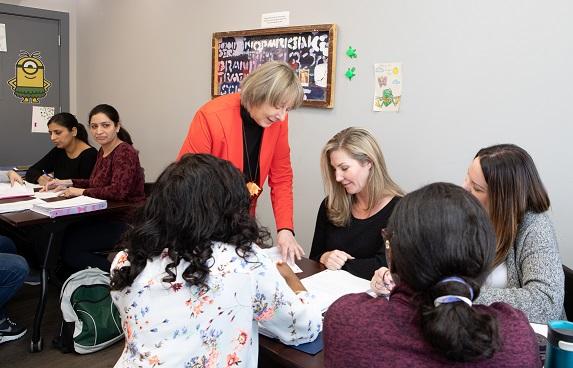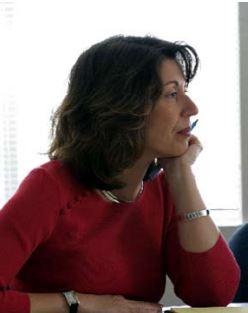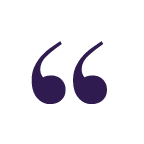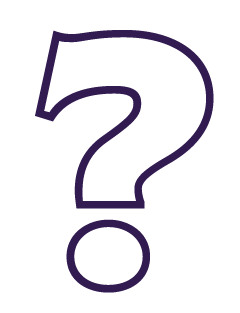19 4.2: Development of Teachers’ Identity
As our identity affects so much about the way we respond, it is critical to look at our own identity as individuals and in our professional role of early childhood educators. In addition to developing a personal and social identity, teachers also develop a specific professional identity. This process begins during childhood and continues throughout the lifespan.
The professional identity of teachers includes the following: their personal values and beliefs, their professional values and belief, and their cultural experiences which they learned in their childhood and their cultural experiences that they have accepted into their daily lives. In reflecting on these experiences, it affords teachers opportunities to gain deeper understanding of themselves which helps them to understand others. It provides them opportunities to gain empathy and understanding of others that can only be accomplished when we understand ourselves.
Most early childhood professionals had experiences during their schooling that have shaped their ideas of teaching. [41]
|
|
“I do not exactly remember what I, as a child, wanted to be when I grew up. I think it was not a concern of mine. But I recall a certain episode, already in 4th grade, in which I answered I wanted to be “a teacher of children”. By that time, my representation of a teacher was “someone who knows a lot of things”. Later, throughout the years, I wanted to be other things, depending on my interests:… It was only later, when I was already in college, studying to be a teacher, that the desire of the 4th-grade girl intensified. It was the experience in a summer camp, with children aged 4 to 12, which made me want to know more about the world of the child. Now, looking back, I think, humorously, that this profession, at that time, was still “not yet born” and that, somehow, I was expecting its birth [emphasis added].” Miranda (student teacher) [42] |
The teaching profession is a journey of reflection to learn more about ourselves in this role. As we learn more about who we are, we are able to understand our teaching philosophies and our role in promoting equitable learning environments. The journey is one of progress not perfection. As we interact with the children and families we serve, we become more aware of our role.
Learning is inherent to the human condition. Every human has the capacity to learn throughout the lifespan. Education provides opportunities to improve oneself, acquire and/or modify knowledge, gain competency, and construct meaning (which may be the same as acquiring and/or modifying information so may not need to include that or use that instead of the former). We do this through the experiences we have, the interactions with others (development of interpersonal relationships), observing other teachers in action and applying what we have observed and learned in our course of study.
This learning includes:
- Knowledge for practice is the one which derives from academic research (formal knowledge) and from which teachers structure their practice, i.e., it is the application of formal knowledge to practical teaching situations.
- Knowledge in practice is the one acquired during the activity, since teachers’ knowledge is immersed in their practice, in what they perform about practice, in questioning, and in the narrative of this practice. Knowledge comes from action/experience, from the understanding, and from the reflections and decisions which teachers make every day in schools.
- Knowledge of practice is what Formosinho (2009) calls the knowledge built in a collective manner inside local communities, formed by teachers who work in school development, education, or collaborative questioning projects.
It is from the gaining of knowledge and engagement in learning experiences (action) that it becomes possible to articulate theory and practice. The teacher learns how to learn and learns how to teach.

This group culture and the feeling of belonging to a professional family (Tejada Fernández, 2009a, 2009b) constitute a complex, interactive, and multidirectional process between the student and the teacher, in which relationships are based on ethics, respect, and by valuing social differences (Tejada-Fernández, Carvalho, & Bueno, 2014). [44]
In response to increased accountability measures and evaluation systems, schools adopt new approaches and innovations. Such activities often require teachers to adopt new roles and responsibilities, develop new knowledge and skill, and reconfigure their relationships with peers and administrators. As a result, teachers build new professional identities in response to the underlying question—who am I as a teacher? [45]
Becoming Equity Minded
Once the student teacher becomes a teacher in an early childhood classroom, the journey of gaining knowledge and experience continues. This journey includes taking the path towards social equity. This requires teachers reflecting on the underlying reasons for the way they educate and care for children so that they can become equity-minded. One way to define equity-minded.
|
|
Think About It… Based on what you’ve read and learned so far, how would you define equity-minded? |

It is important for teachers to act as critical thinkers and not just supposedly neutral performers of what is considered to be effective teaching. Very often teaching young children is seen as just supervising play, managing behaviors, and implementing activities with children. But teaching should be considered to be an important responsibility, in which the teachers use what they know about children and their families to create a developmentally appropriate curriculum and build strong, reciprocal relationships with children and families based on their cultural and social contexts.
This culturally responsive approach, supports children to become participants in a democratic society and work towards equity. This involves taking an active responsibility in asking fundamental questions about what they actually teach, and especially about the broader aims which they wish to achieve, and about their role in developing a democratic and just society. Books, such as this one and the course it was written for will support your journey as an equity minded early childhood educator.



